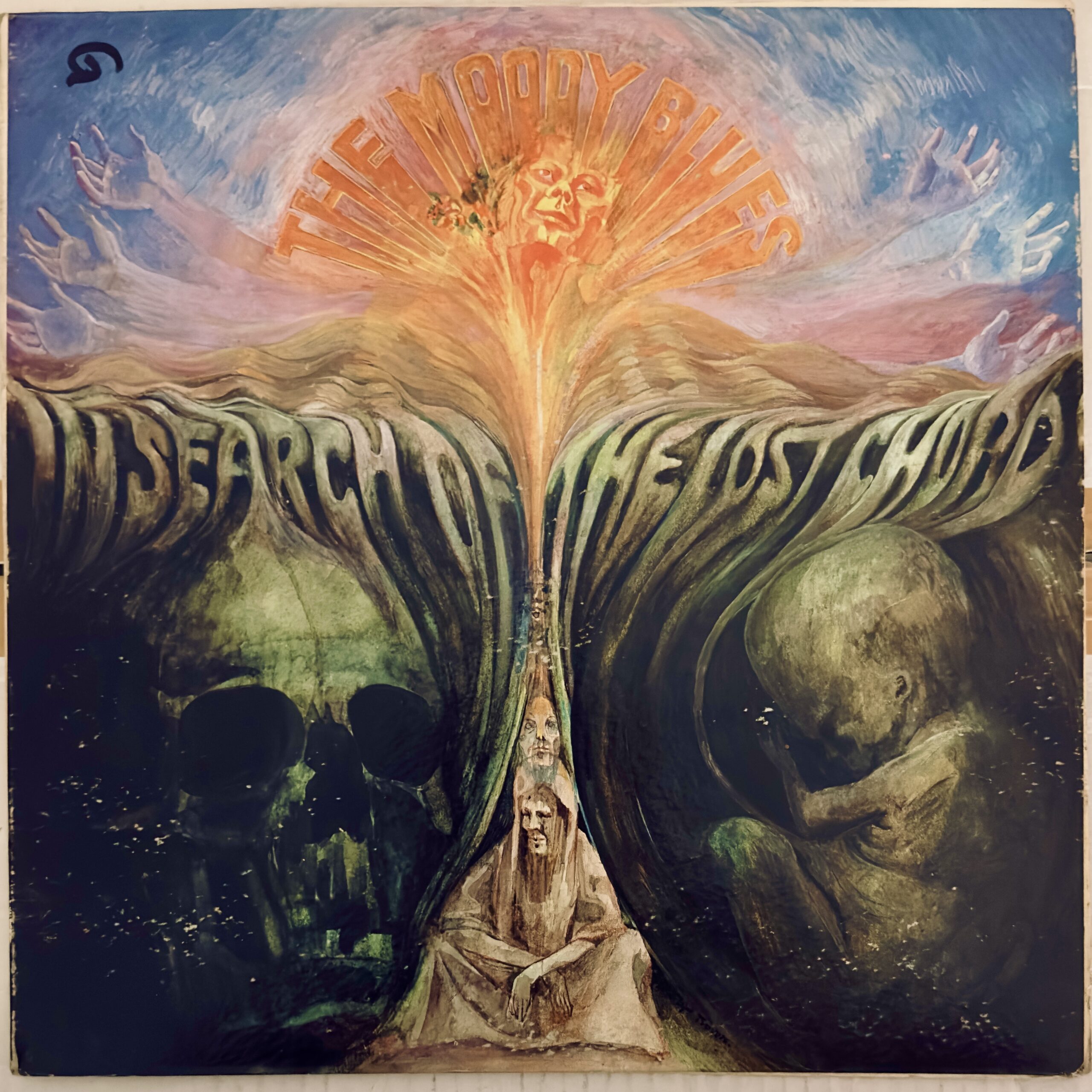Record basics
- Album name: In Search of the Lost Chord
- Group name: The Moody Blues
- Year: 1968
- Number of discs: one
- Label: Deram Records
- Collection: Brenner / Gessner
- Distinguishing characteristics: “G” written on top left of album, indicating that my father owned it
- Buy it on Amazon: $35.98

My review
Level of familiarity before listening
I’ve never listened to this record before, but it will be my fifth by the Moody Blues. The previous four were:
- Days of Future Passed (1967): 3/5
- On The Threshold of a Dream (1969): 4/5
- Every Good Boy Deserves Favour (1971): 3/5
- This Is The Moody Blues (1974): 3/5
What I expected
More progressive rock with Space Oddity vibes.
What it was actually like
The weird and completely unnecessary narrator did reappear on on In Search of the Lost Chord, and he was as annoying as he was on the other records, but fortunately the narration was limited to just two brief tracks, Departure and The Word.
The Best Way to Travel had some really irritating sound effects, but otherwise sounded more or less like the Beatles of 1968-9.
I thought that Legend of a Mind was the best song on the record, with a weird, psychedelic riff from what sounded like a keyboard and organ, and it also passed the flute test. A bunch of other songs failed the flute test, however, most notably Visions of Paradise. The flute test, by the way, comes from my review of Loggins and Messina (1972):
…I’m maybe slightly more forgiving of flute being used in rock music [than saxophone], if only because it’s so uncommon, but there’s a simple standard that I would apply: are you Jethro Tull? Are you better than Jethro Tull, or engaged in a serious attempt to do something that Jethro Tull hasn’t done or can’t do? If you answer no to all of those questions, then you probably should leave the flute out of your rock song.
Another song that I liked was Ride My See-Saw, which was basically a solid rock song with vocal harmonies, that reminded me of surf rock. House of Four Doors and House of Four Doors (Part 2) were similar, but slower.
A few songs on the record had a bit of Indian style instrumentation, but the most interesting was Om, which was heavily Hindustani with sitar (but still with unnecessary flute). I would not exactly say that it was a great song, but it did feel exploratory.
Dr. Livingstone, I Presume, an Oompa Loompa song that also would have qualified as Faul’s granny shit, was the worst.
Grade
4/5: would listen again



